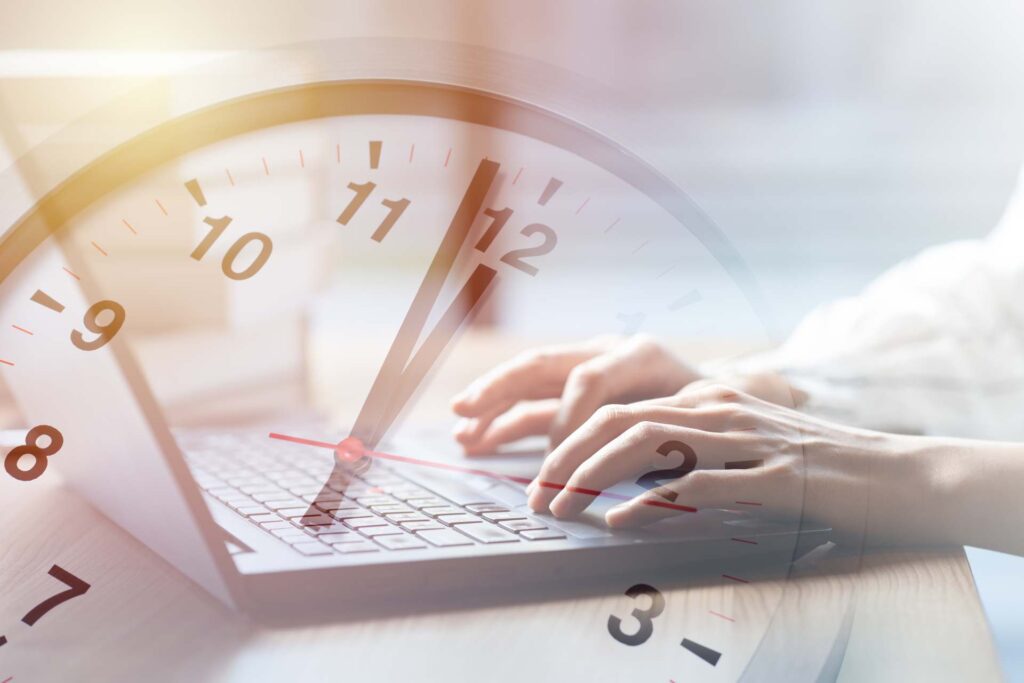How Is Productivity Affected When Employees Multitask?
Multitasking is slowly losing its positive aura, and becoming an enemy of productivity. Indeed, when employees multitask, productivity is highly affected. And there are several studies that confirm it.
Despite being listed as a requirement in most current job openings, multitasking not only help but hurts employee productivity. In this article, you’ll find everything you should know about the effects of multitasking in the workplace.
You may even find out why you’re not getting things done.
Multitasking affects productivity
Multitasking is the practice of switching between multiple tasks quickly and easily. Being a good multitasker is generally praised as it’s seen as a quality.
In specific jobs, for example, in customer service, multitasking skills are definitely needed. A good waiter must be a good multitasker to ensure that all customers have proper attention and leave happy.
However, the case is different in jobs requiring a high concentration level. For accountants, mechanical engineers, and surgeons — just a few examples — concentrating on one task at a time is necessary to produce quality work and avoid costly mistakes.
Additionally, there seems to be a common belief that women are better at multitasking than men, but there is very little scientific background on this topic.
Some studies have analyzed the performance of women vs. men in multitasking processes without relevant findings.
The general conclusion, however, is that the performance of both genders suffers when we try to focus on several tasks at the same time. So let’s dive into the effects of multitasking on productivity.

The hidden truth about multitasking in the workplace
In today’s workplace, we’re constantly interrupted by different stimuli. Even though you’ve been committed to working, it feels like you haven’t achieved anything. This happens because multitasking doesn’t just hurt our concentration but also our productivity.
Did you know that multitasking is one of the reasons why people feel unproductive?
The adverse effects of multitasking begin when employees cannot focus on their tasks. This is particularly likely to happen when employees are unfamiliar with the charges or when there’s a strict deadline.
The complexity of the tasks may also affect the ability to multitask. The most obvious result is, of course, poor performance but failed multitasking attempts may also result in serious mistakes or even injuries.
According to several studies, multitasking can:
- Decrease work quality and increase mistakes;
- Increase stress levels and lead to poor decision-making;
- Waste significant amount of time when you switch between tasks;
- Actually lower your IQ by 15 points — the equivalent of staying up all night;
- Reduce productivity by up to 40%.
Multitasking is an enemy of productivity. And yet, job listings continue to list multitasking as a requirement, and candidates still use it as a quality in cover letters.
Then there’s the problem of modern devices. On a typical work day, you can be working on the computer, taking a break to read news on your mobile phone, and sending emails again on your laptop in less than 5 minutes.
Trying to complete multiple tasks at once is damaging enough, but when you add multiple devices to the story, it all worsens.
In 2016, a study published in PubMed showed that those who chronically multitask between different media forms, for example, between their laptop and mobile phone, had more long-term memory problems than those who don’t.
In other words, pausing to check your social media in the middle of work, besides being a time waster, also affects your cognitive ability, not just your productivity.

Better alternatives to multitasking
Now that you know that multitasking isn’t helping you like you thought it did, it’s time to figure out how you can manage all your work. Got a lot on your plate? The answer can be effective time management.
Proper time management results in higher productivity levels and hence better results. Additionally, it contributes to motivation and overall well-being.
Time management is a skill you can learn over time, and it’s plenty of courses and resources to teach how to do it properly.
Read also: Time management training for employees
Here are some tips to start practicing better time management today:
- Create a to-do list and work on one task at a time;
- Set SMART goals;
- Prioritize tasks based on impact and effort – try RICE method;
- Remove all distractions, especially devices;
- Try some time management techniques;
- Take advantage of time management tools.
All these tips are great first steps for you to stop working in a disorganized and frantic way.
Read also: Improving employee productivity
How to help your team not multitask
Leaders play a vital role in the work culture of the team and the company. So if you’re in a leadership position, it’s time to look at your team members and reflect on the work culture you foster.
Are your employees buried under work, leading them to feel the need to multitask? If so, it’s time to make changes.
Build a culture of slower but more purposeful work. This is the true meaning of the phrase “quality over quantity.”
It would be best to encourage employees to take breaks throughout the day. When people are overwhelmed by their tasks, they will feel more pressured to respond quickly and multitask.
Finally, try to celebrate positive behaviors and approaches to work that are more engaged and focused. It’s unrealistic to think you can control your team members’ work methodology, so celebrate the small victories.
Read our guide and learn how to get organized at work when overwhelmed.
Conclusion
Multitasking was for many years seen as an essential skill and valued by employers. However, more recent research has come to show the devastating effects of multitasking: productivity can be severely affected and reduced by up to 40%.
Multitasking doesn’t precisely have positive effects.
Just the illusion that we’re busy and getting on with all the tasks.
Apart from professions that actually need you to do several tasks at the same time, the average worker should avoid jumping between several tasks.
Instead, you should work on your time management skills and enlist the help of your managers to manage your workload appropriately.
FAQS
How does teamwork affect productivity?
Teamwork can help you achieve more significant productivity thanks to workload sharing, peer support, and overall motivation. Collaboration has been shown to increase work productivity and can significantly impact your results.
How does remote working affect productivity?
Despite initial fears, remote working increases productivity. Several studies have shown the positive effects of remote work: performance can grow up to 13%, and productivity increases by up to 77%.
How does stress affect work productivity?
Stress severely impacts work productivity. Concentrating becomes more arduous, which makes workers less productive and even experience more trouble learning new information. Stress also affects overall well-being and motivation.
How to motivate employees to be more productive?
Some strategies to keep your employees motivated, engaged, and inspired include promoting team-building activities, setting realistic goals, celebrating milestones, and giving constructive feedback. It would be best if you also encouraged them to develop new skills, namely time management.
You might be interested in: